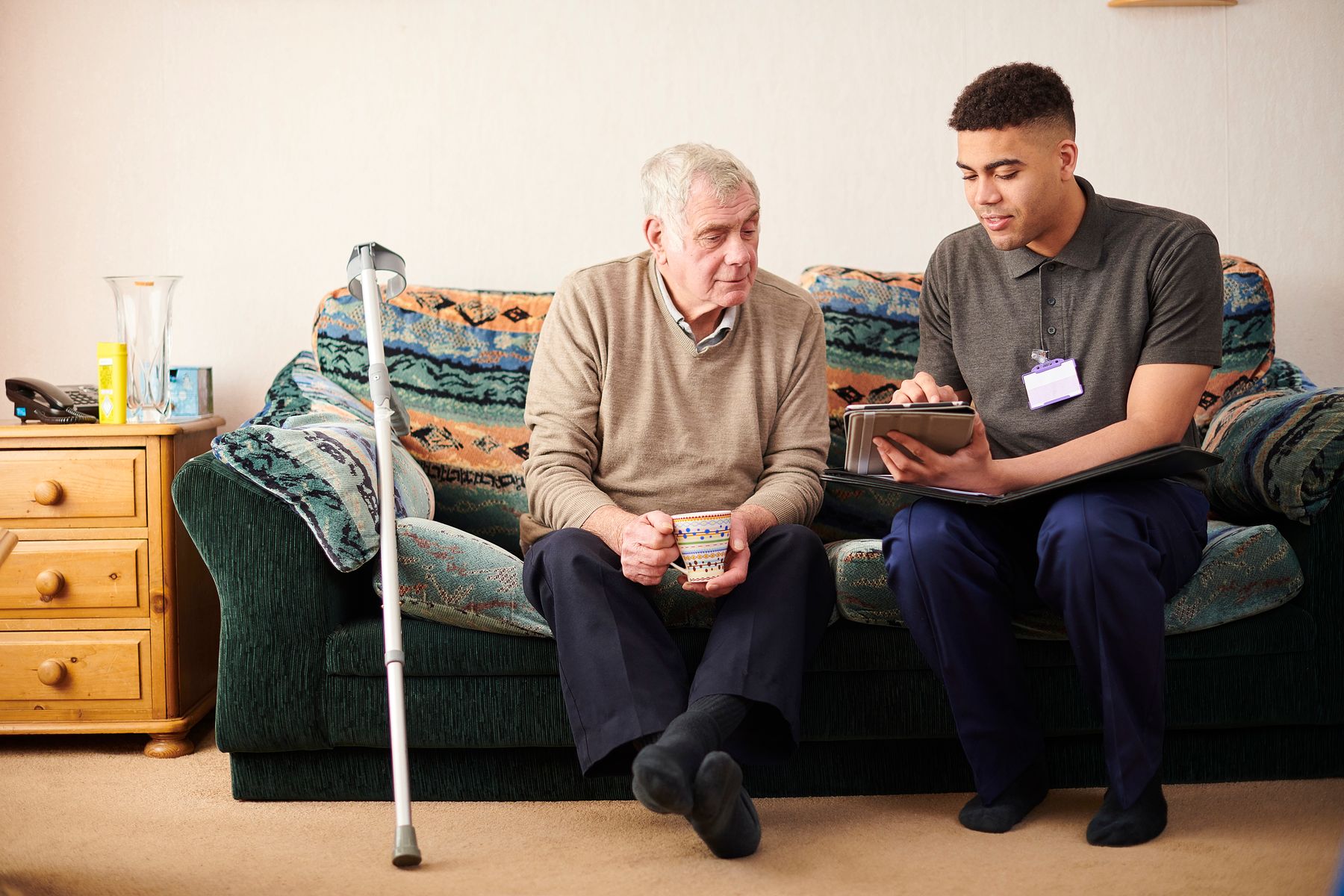Public Health MA
About this course
The need for a public health workforce that has the required skills, knowledge and experience, and that is also able to adapt to changing demands with a focus upon prevention and protection is essential. This Masters degree is an adaptable and evolving course which aims to prepare you for the public health workforce by critiquing, exploring and linking theory to practice, enabling you to become future change agents and being job and career ready upon graduation.
You will explore topics which focus on public health from a local, national and international perspective, immersed in social theory, in order to develop transferable skills.
What you’ll study
This course focuses on the local, national and international elements of public health. You will be required to explore and critique these, while considering different cultural, economic and sustainable practices within the public health field and how this links with the theory you'll learn.
In order to achieve breadth of understanding, you will explore the evidence-base through analysis and critique of research, its epidemiological foundations, and the way that statistics inform and shape public health. You will discuss health protection issues and determine how they affect policy development, and this will be underpinned by exploring the theoretical concepts of health and healing.
Linking these elements together through either the exploration of a single topic through independent study, or choosing to undertake a project while on a placement with a public health team, you will consolidate this knowledge to understand and demonstrate the principles of public health.
Core modules
Concepts of Health and Healing
This module explores the fundamental approaches and concepts of health and how this is affected by social determinants of health. Analysing and understanding these perspectives will enable you to explore and plan health promotion interventions on a local, national and global scale.
Public Health, Sustainability and Community
The practical elements of this module allow you to explore the needs of a local community and consider the place of sustainability and public health interventions within this domain. Considering public health policy, you will explore the effects of socio -economics and the social determinants of health in order to develop an intervention that will improve the health outcomes of a defined community.
Policy and Practice in Multidisciplinary Public Health
This module will provide you with a comprehensive understanding of the development process of public health policies at national and global levels and how to analyse health policies for scholarship or reform purposes. During the module, you will learn how to critically analyse existing health policies and propose evidence-based recommendations for policy improvement. It will expose you to the application of the theories and frameworks of the policy process, and methods of doing health policy analysis and evaluation.
Health Protection and the Effects on Society
This module will explore the health protection issues locally, globally and internationally, and how these are addressed with the evaluation of the outcomes of this. It incorporates a mixture of practical and theoretical sessions which allow you to explore and identify stressors which affect the public health outcomes of individuals and consider mitigating against these risk factors. You'll explore the role of the public health professional in several different health protection scenarios, explore of the impact of these, and consider the short and long-term implications.
Research Methods
The Research Methods module aims to broaden your understanding of epistemological and methodological approaches in research while deepening your knowledge of the challenges faced by public health researchers in real-world settings. The module covers both quantitative and qualitative approaches, equipping you with the skills to critically evaluate and apply research methodologies to public health challenges. Through practical exercises and discussions, you will develop the ability to design and conduct rigorous research in public health contexts.
Independent Study
The ability to manage a project is an essential skill. With a choice between a primary research project, secondary data analysis and a critical review of literature, you will lead a public health project of your choice. Demonstrating understanding of methodology and the ability to synthesise and discuss information is an essential component of this module and will transfer in to any public health working environment.
Professional Practice and Work-Based Experience in Public Health
This module aims to enhance your employability by providing you with the opportunity to work on a project in a supported environment ,being part of a team within the public health field. It allows you to observe and reflect upon how an organisation works.
Research Proposal
The Research Proposal module supports you to identify and apply appropriate research processes to a public health research question of your choice. You will take the lead in developing a research proposal, incorporating a literature review, aims and objectives, rationale, methodology, time management plan, and dissemination strategy. Through a combination of teaching, guided supervision, and independent study, this module provides a strong foundation for conducting rigorous public health research.
Optional modules
Public Health Leadership
This module is designed to ensure practitioners have the knowledge and skills to lead and manage public health issues, interventions and services in a local, national and global field. It will enable service review, improvement and project development and management. Leadership theories, change, and quality management will be explored and applied to the global public health arena to enable the development of skills and knowledge to ensure the effective application of leadership to professional, policy and legal frameworks.
Epidemiology
You'll be introduced to where epidemiology sits within the public health arena, with particular focus on the measurement of social determinants of health. It emphasises the importance of distribution of health issues and surveillance in order to study and extract statistical data which will influence your knowledge and skills. This will further enable you to understand cause, and develop and deliver key public health interventions and outcomes.
We regularly review and update our course content based on student and employer feedback, ensuring that all of our courses remain current and relevant. This may result in changes to module content or module availability in future years.
Don’t just take our word for it, hear from our students themselves
Q&A - MA Public Health
How you're taught
Study and support
The course is delivered through lectures, tutorials, workshops, group work, practical and simulated application and presentations, and one-to-one supervision. You will receive support throughout your studies from committed and enthusiastic teaching staff, who are also involved in research activity.
You may also get the opportunity to hear from a range of guest speakers such as Nottingham City Council's Public Health Team, and alumni who have worked or volunteered locally, nationally and internationally.
Placements
We work with a range of partners that provide placement opportunities for our students, including:
- Nottingham University Hospitals NHS Trust
- Vanclaron Chats
- Beaumond House
- South Nottinghamshire Place-Based Partnership
- International Development Foundation
- Healthwatch
Assessment methods
The course employs a varied assessment regime, which includes essays, reports, reflective pieces, a portfolio, individual and group presentations, an exam and viva. The Independent Project and the Research Proposal gives you the opportunity to design, implement and present a significant piece of research relevant topic of your choice.
In-sessional academic writing support
In-sessional English language support classes are available to all international (non-EU) and UK students studying on degree courses at NTU. There is no extra charge for these classes as this is a compulsory module within the programme.
Contact hours
You will have around 10-12 hours per week of contact time (lectures, seminars and workshops) with our teaching staff which is around 30% of a full-time week. All of our teaching is in-person. The remaining 70% of your time will be devoted to independent study.
Careers and employability
The course cultivates intellectual and research skills, experience and knowledge suitable for effective practice in a wide range of multidisciplinary public health sectors. You will be equipped to progress into policy, research and practice roles in the public, private or voluntary arenas in the UK or internationally. For those already employed it provides transferable skills such as independent critical thought, analysis and evaluation, partnership working skills and self-directed learning, linking the theory to practice.
Previous graduates have gone onto roles including:
- Public health practitioner with Nottingham City Council
- Data Insights Officer with Healthwatch Nottingham
- Commissioning Officer with an NHS Trust
- PhD student
- Programme leader for this course!
Volunteering opportunities
Our Employability team will advise you on the volunteering opportunities available to you which will assist you in your chosen field of public health and widening your understanding, whilst also providing a good source of information for your future CV.
The Employability team also work closely with the course staff to fit in sessions which will enable you to enhance your CV, have an understanding of covering letters and interview etiquette.
The course team arrange also for Alumni to visit and discuss their journeys post-graduation.
Employability team
Our expert Employability team will work closely with you at every stage of your career planning, providing personal support and advice. If you’d like to know more about NTU’s groundbreaking Employability Promise, and the support you’ll receive both during and after your course, visit our Careers and Employability page.
Campus and facilities
The purpose-built Health & Allied Professions (HAP) Centre is home to our world-class teaching, practice, research and scholarship in the Institute of Health and Allied Professions (IHAP).
Our self-contained, community-focused Clifton Campus has been designed to keep our students busy between lectures. Catch-up with your coursemates in the Pavilion’s barista café and Refectory; brainstorm group presentations in chic and stylish study spaces; enjoy some proper R&R in The Point, home of our Students’ Union. The campus also hosts the multimillion-pound Clifton Sports Hub, offering great options for everyone — whatever your interests, and however competitive you’d like to get!
You’re also right next to the bright lights of Nottingham — one of Britain’s top 10 student cities, and one of Europe’s top 25. All through termtime, a dedicated on-campus bus service will get you to the heart of the action (and back) in under 25 minutes. You’ll find a city stuffed with history, culture, and well-kept secrets to discover at your leisure: enjoy lush green spaces, galleries, hidden cinemas and vintage shopping by day, and an acclaimed food, drink and social scene by night.
Take our virtual tour to get a real feel for the campus.
Entry requirements
UK students
- You will need an undergraduate degree equivalent to a UK undergraduate honours degree (2.2 or above) in a related subject.
- Applicants without such qualifications will be considered on an individual basis but will be required to demonstrate how their experiences in the multidisciplinary public health territory (e.g. awards, scholarships, work experience - either paid or unpaid) and knowledge and skills would enable them to study this course at masters level in their Personal Statement.
Additional requirements for UK students
Such experience and skills are likely to include a range of the following:
Previous study
You should provide any history of previous study that suggests that you are likely to cope with a course of study at postgraduate level.
Work experience
You should be able to demonstrate a clear appreciation of your role, function and relevant achievements within employment, and an awareness of how the course of study may assist your future career aspirations. The work experience should be in a public health field for at least six months and you should have undertaken some training that you can evidence during that time that links to this field of study.
Personal skills
You should be able to demonstrate the ability to work independently and in teams, to solve practical problems, to plan work and manage time effectively in order to meet deadlines, and to show perseverance and initiative when required.
Communication
You should be able to demonstrate an ability to communicate ideas effectively in both verbal and written forms.
Motivation
You should be able to provide a clear reason for applying for the course and have a demonstrable commitment to pursue study in the field of multidisciplinary Public Health. No references are required when applying for this course.
Other qualifications and experience
We welcome applications from students with non-standard qualifications and learning backgrounds and work experience. We consider credit transfer, vocational and professional qualifications, and any work or life experience you may have.
You can view our Recognition of Prior Learning and Credit Transfer Policy which outlines the process and options available, such as recognising experiential learning and credit transfer.
Getting in touch
If you need more help or information, get in touch through our enquiry form.
International students
Academic entry requirements:
- You will need an undergraduate degree equivalent to a UK undergraduate honours degree (2.2 or above) in a related subject.
- Applicants without such qualifications will be considered on an individual basis but will be required to demonstrate how their experiences in the multidisciplinary public health territory (e.g. awards, scholarships, work experience - either paid or unpaid) and knowledge and skills would enable them to study this course at masters level in their Personal Statement.
We accept equivalent qualifications from all over the world. Please check your international entry requirements by country.
English language requirements: See our English language requirements page for requirements for your subject and information on alternative tests and Pre-sessional English.
If you need help achieving the academic entry requirements, we offer a Pre-Masters course for this degree. The course is offered through our partner Nottingham Trent International College (NTIC) based on our City campus.
Additional requirements for international students
Such experience and skills are likely to include a range of the following:
Previous study
You should provide any history of previous study that suggests that you are likely to cope with a course of study at postgraduate level.
Work experience
You should be able to demonstrate a clear appreciation of your role, function and relevant achievements within employment, and an awareness of how the course of study may assist your future career aspirations. The work experience should be in a public health field for at least six months and you should have undertaken some training that you can evidence during that time that links to this field of study.
Personal skills
You should be able to demonstrate the ability to work independently and in teams, to solve practical problems, to plan work and manage time effectively in order to meet deadlines, and to show perseverance and initiative when required.
Communication
You should be able to demonstrate an ability to communicate ideas effectively in both verbal and written forms.
Motivation
You should be able to provide a clear reason for applying for the course and have a demonstrable commitment to pursue study in the field of multidisciplinary Public Health. No references are required when applying for this course.
English language requirements
View our English language requirements for all courses, including alternative English language tests and country qualifications accepted by the University.
If you need help achieving the language requirements, we offer a Pre-Sessional English for Academic Purposes course on our City campus which is an intensive preparation course for academic study at NTU.
Other qualifications and experience
We welcome applications from students with non-standard qualifications and learning backgrounds and work experience. We consider credit transfer, vocational and professional qualifications, and any work or life experience you may have.
You can view our Recognition of Prior Learning and Credit Transfer Policy which outlines the process and options available, such as recognising experiential learning and credit transfer.
Sign up for emails
Sign up to receive regular emails from the International Office. You'll hear about our news, scholarships and any upcoming events in your country with our expert regional teams.
Getting in touch
If you need advice about studying at NTU as an international student or how to apply, our international webpages are a great place to start. If you have any questions about your study options, your international qualifications, experience, grades or other results, please get in touch through our enquiry form. Our international teams are highly experienced in answering queries from students all over the world.
Policies
We strive to make our admissions procedures as fair and clear as possible. To find out more about how we make offers, visit our admissions policies page.












